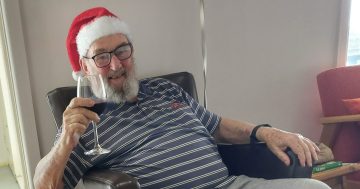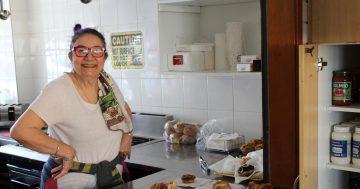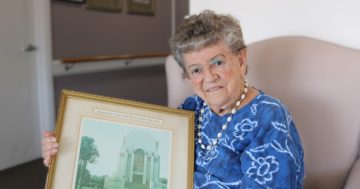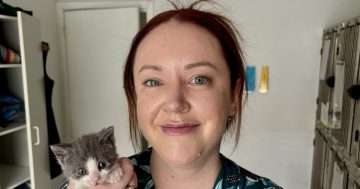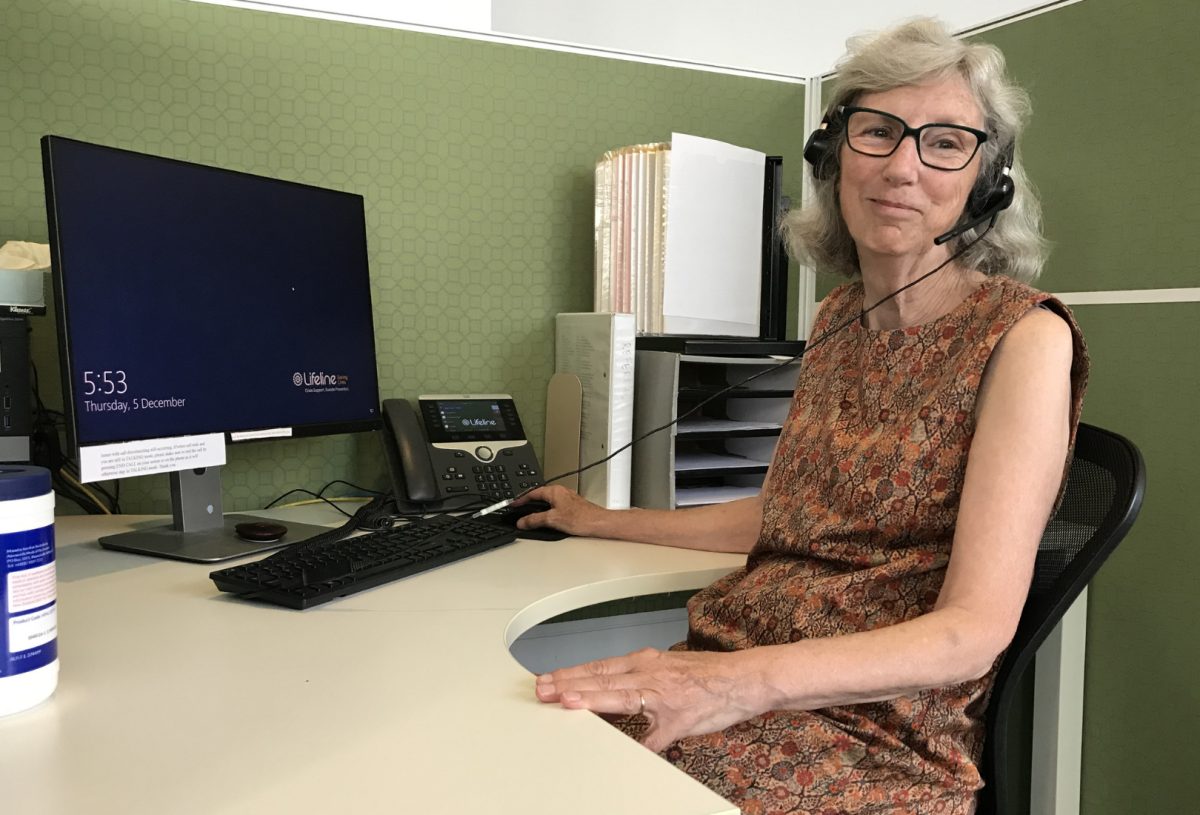
Judy Beadman during one of her shifts at Lifeline South Coast. Photo: Supplied.
On day three of our 12 days of what Christmas means to me series, we meet Judy Beadman who will be manning the phones at Lifeline South Coast rather than sharing a large family lunch on Christmas Day.
For Judy Beadman, her Christmas Day traditions evolved four years ago when she chose to volunteer her time to help those in need by working a shift at Lifeline South Coast.
While many spend Christmas Day surrounded by family and friends, Judy finds fulfilment in being there to listen and support those who may be struggling with loneliness or other challenges during this time of year.
As a volunteer telephone crisis supporter of 11 years, she finds the experience incredibly rewarding, both for the skills she’s gained in active listening and the tangible connections she’s able to make with callers who confide things they’ve never shared before.
Judy said her Christmases had changed over the years, as her children had become adults and given her grandchildren.
“I have three young grandchildren, which has made great changes,” she said.
“As a family, for the last four or five years, we’ve actually celebrated Christmas on Boxing Day.
“My children all have partners, and they go to their in-laws on Christmas Day, and we come together as a family on Boxing Day.”
She said it prevented her children from having multiple engagements on Christmas Day, and allowed them a more relaxed “very big, typical family Christmas” on Boxing Day.
“That means that it’s freed me up to do Lifeline on Christmas Day,” she said.
This year, her shift falls from 6 – 10 am on Christmas Day, requiring an early start to get to the Lifeline South Coast offices in Wollongong from her home in Mt Kembla.
Judy said 11 years ago she was looking for counselling training and stumbled across the Lifeline course.
“To become a telephone crisis supporter we need to do the Lifeline training, which is pretty intense and very thorough,” she said.
“I did it really out of personal development and professional development more than anything, but at the same time I was aware I would be giving back to the community.”
She said the training was better than she could have expected.
“Once I started on the phones, it sounds a bit silly, but I really enjoyed it, and I get a huge amount of satisfaction out of it,” she said.
“I feel quite privileged to talk to people and have them tell me things sometimes they’ve never told anyone before.
“I feel it’s a really important role. I feel really proud to be part of Lifeline. I get a huge amount of personal satisfaction out of it.”
On Christmas Day, calls tended to centre on issues like loneliness.
“Loneliness is a big factor in most of the calls we get. It’s probably the number one thing,” she said.
“But I feel that’s worse at Christmas. It really brings home to people that they are alone, if they’re alone.
“The other thing is that a lot of people get support during the year. They might get support from counsellors, psychologists or friends, and all that shuts down over Christmas, so they’re more alone in that way as well.”
She said financial challenges appeared to have become more of an issue in recent times.
“People don’t have money, and we watch advertising, and look at what the expectations are around Christmas and lunch and presents,” she said.
“Many people just can’t do that.”
Judy said while the office was decorated, and food and gifts were present for staff, they were always careful not to assume the caller was celebrating Christmas.
Supported by a team of like-minded volunteers, she said she would encourage others to become a volunteer, because it was “immensely rewarding”.
She said through training and being on the phones you gained skills that were not only valuable to use on calls but in your personal life.
“Mostly, if we’re talking to someone, we’re not really listening,” she said.
“We’re thinking about what our next question is going to be, or how we are going to respond, or we’re looking at how to fix things for them.
“You learn not to do that and that’s an incredibly valuable skill.
“I feel it’s a really important role, and I’m giving back to the community, but I think I gain much more than I give.”
Visit Lifeline South Coast to learn more about its training and information sessions.









